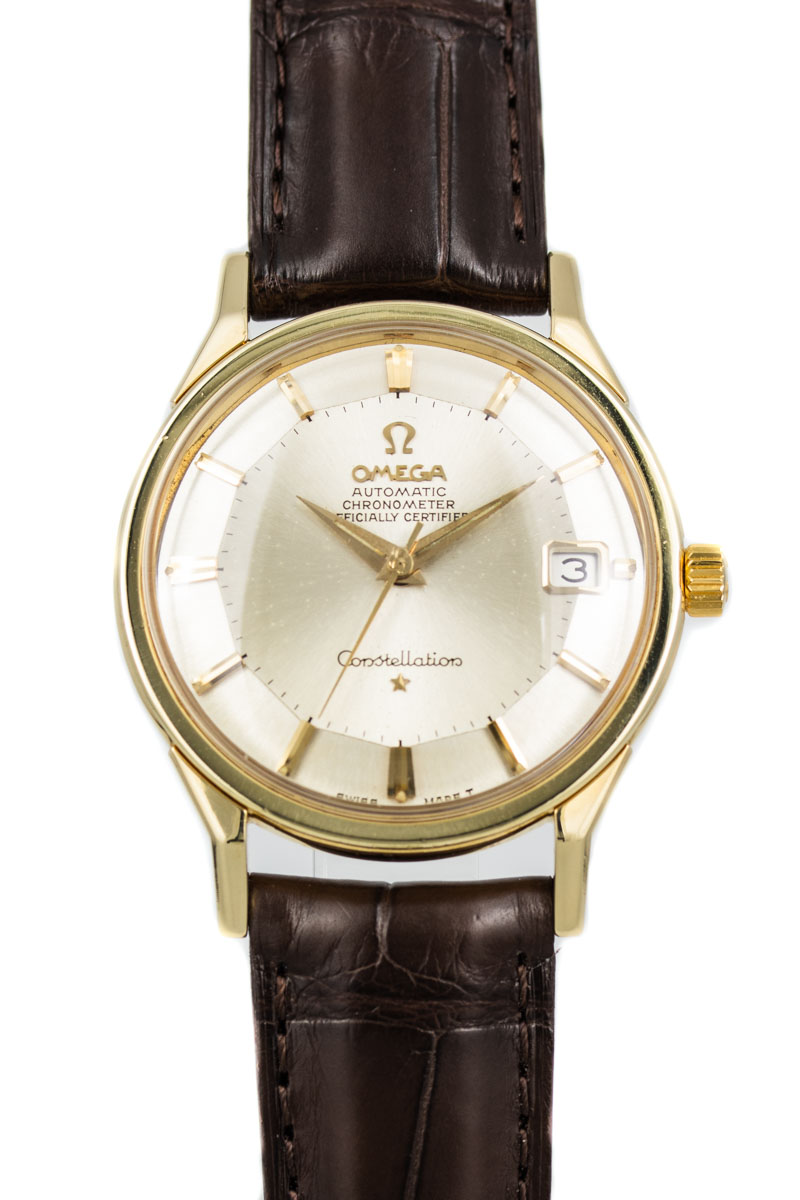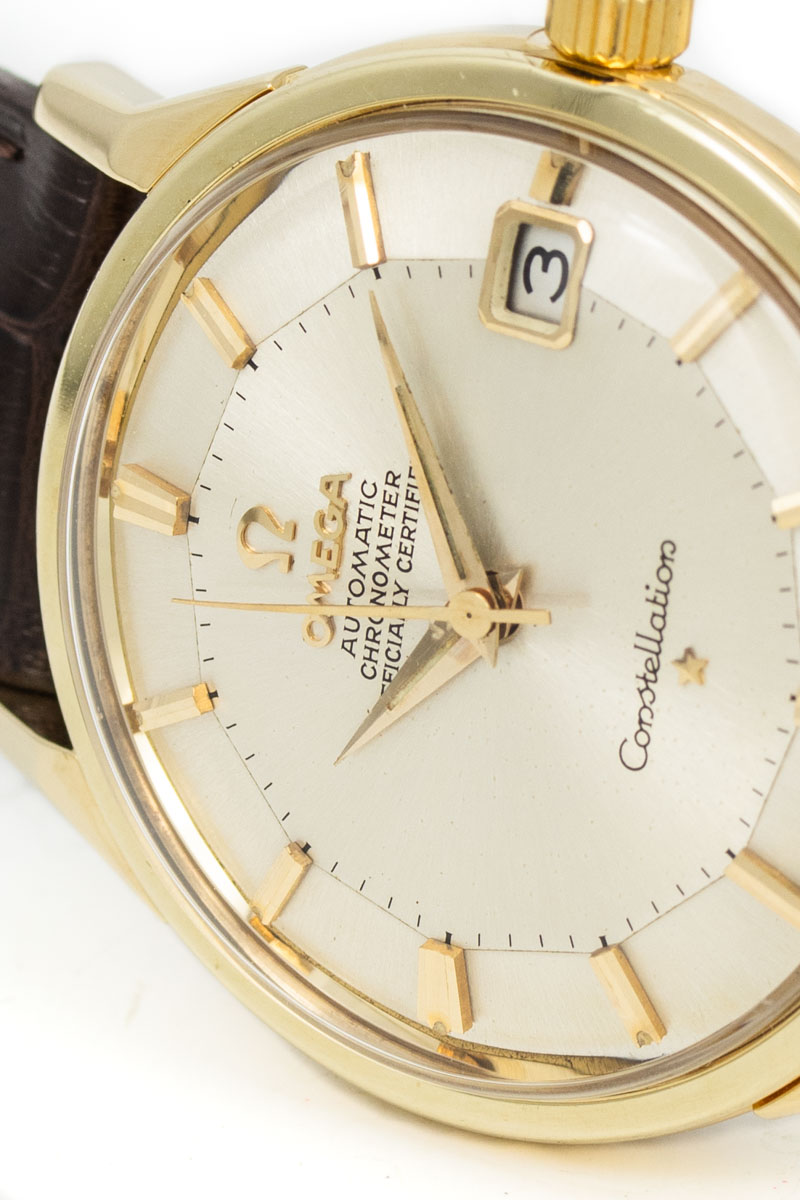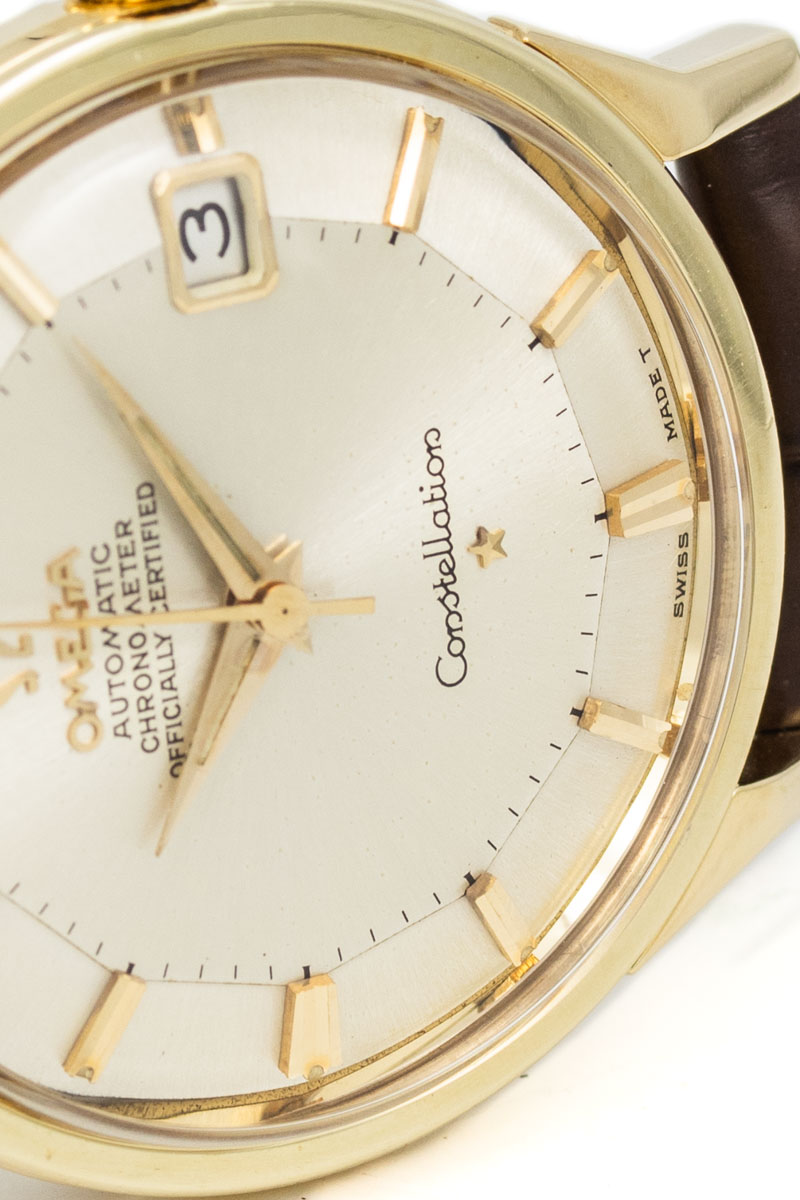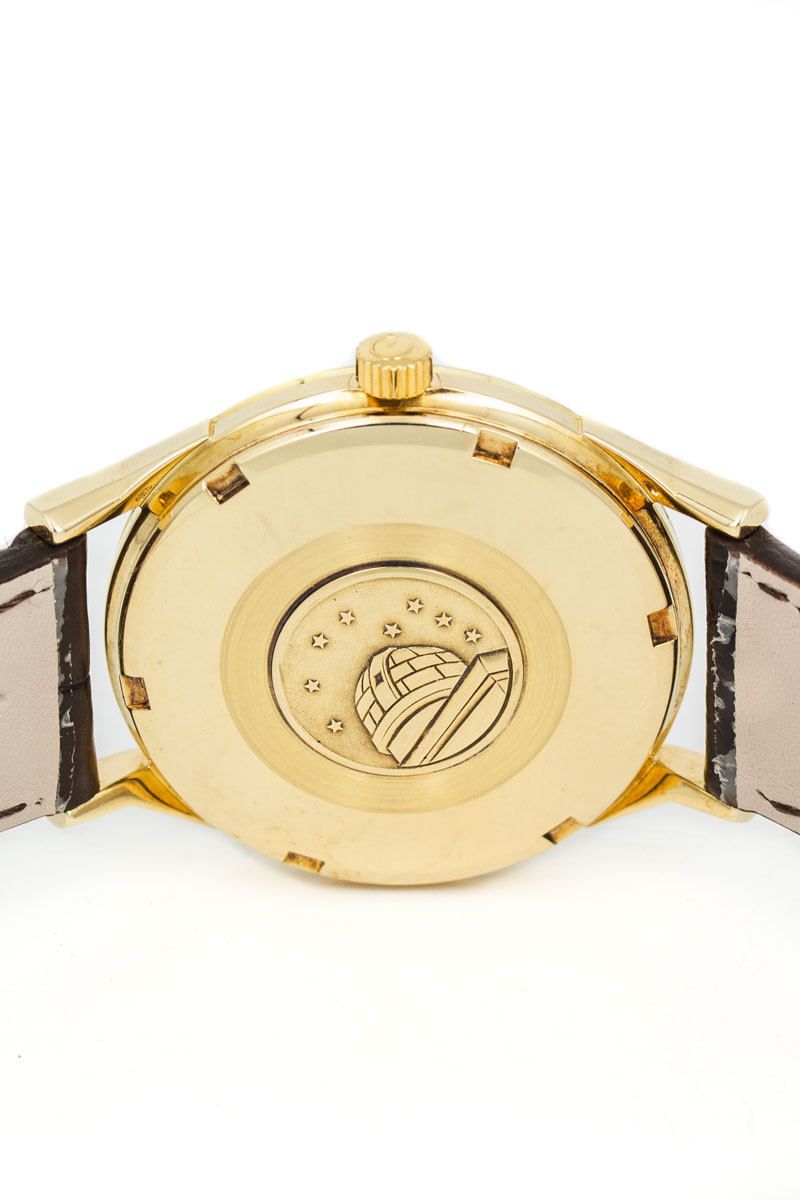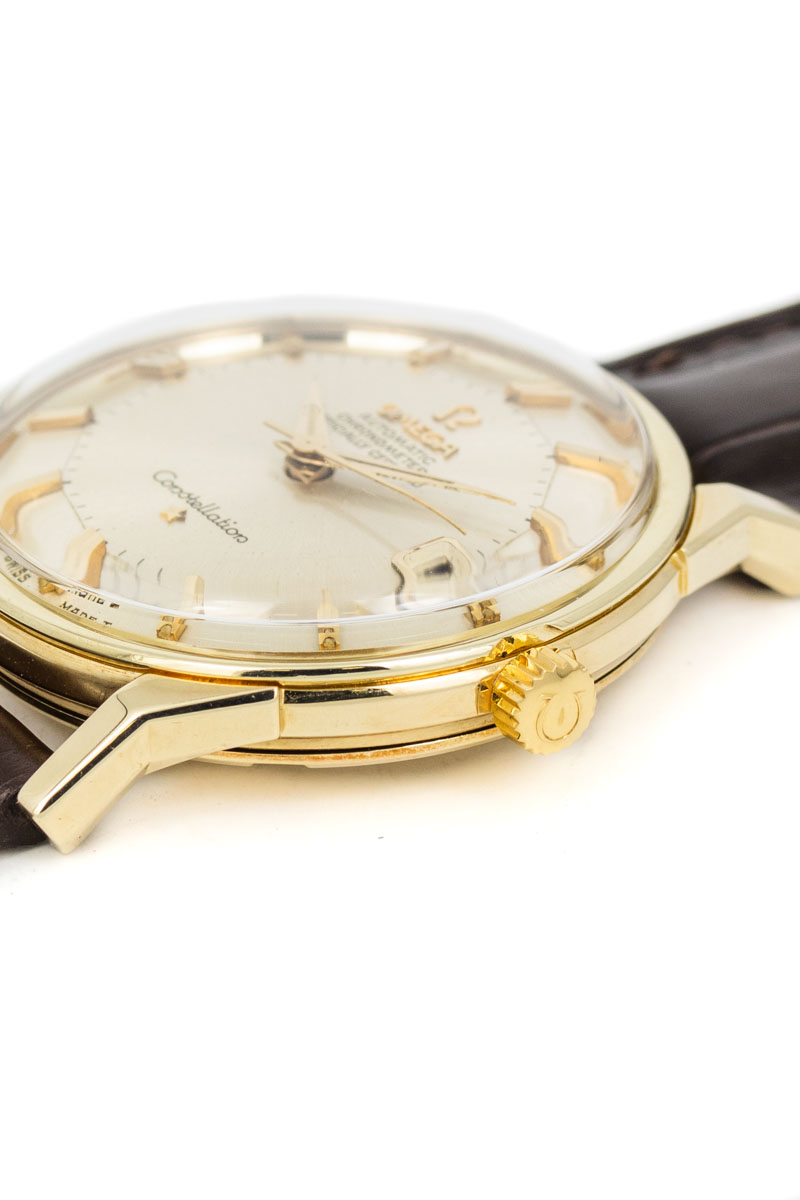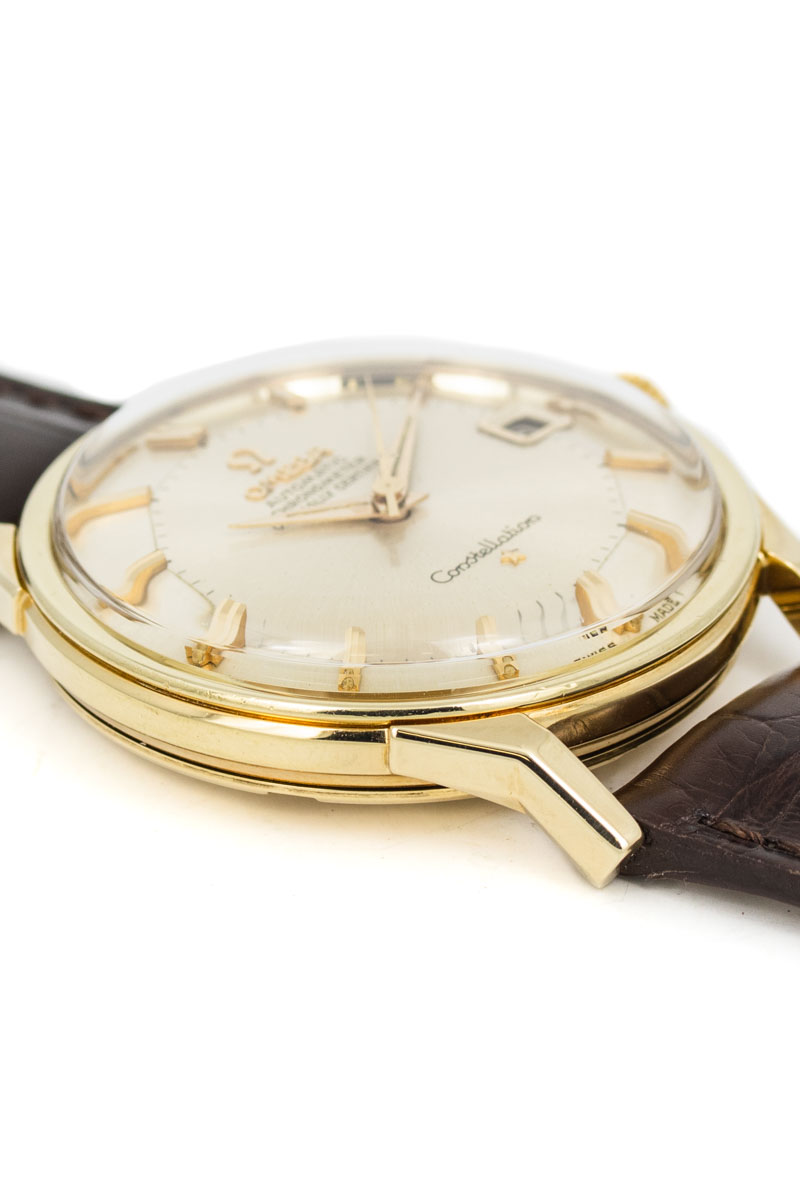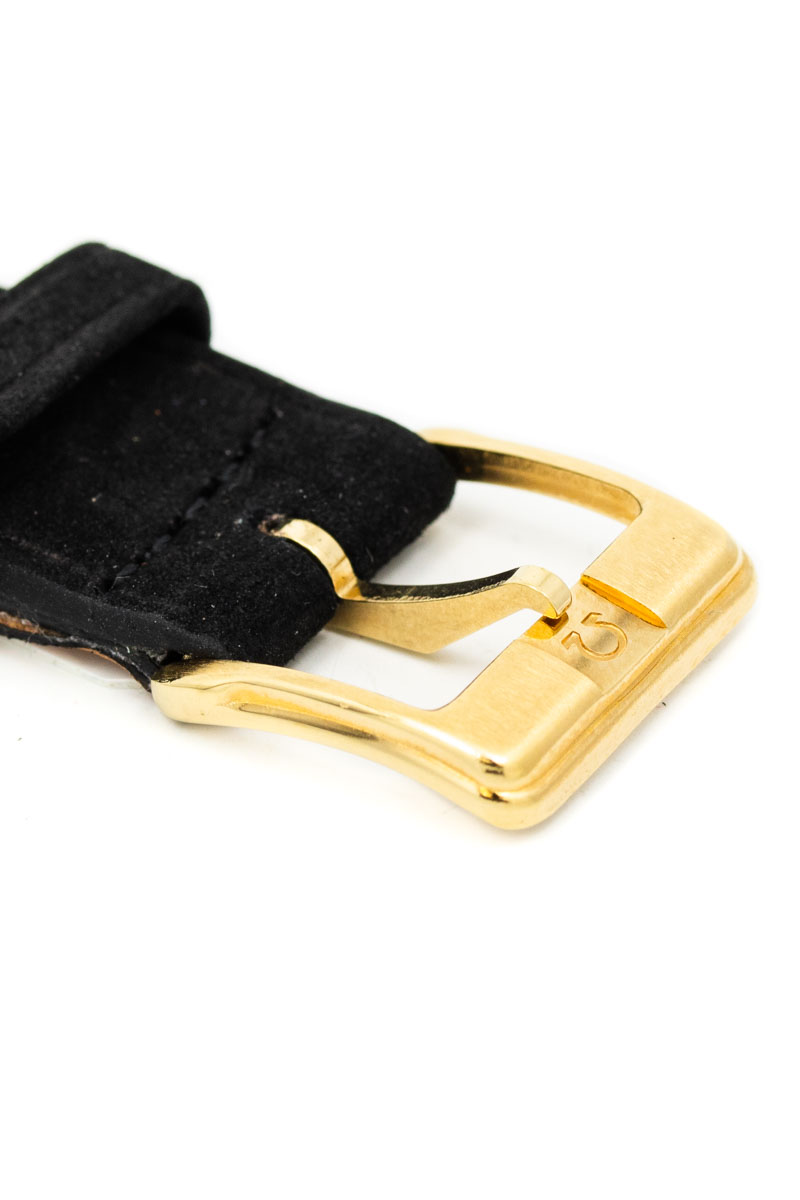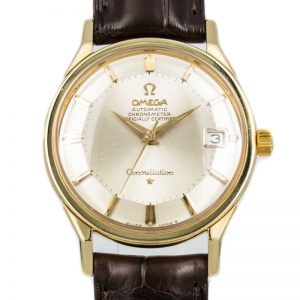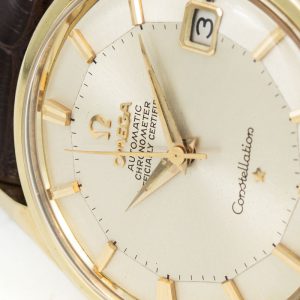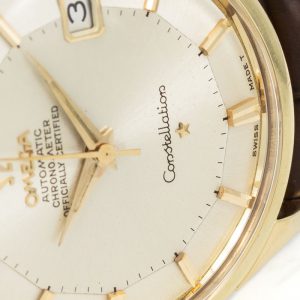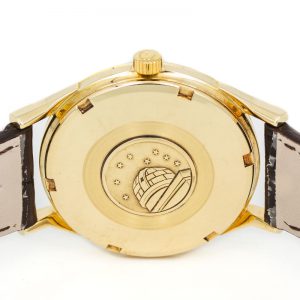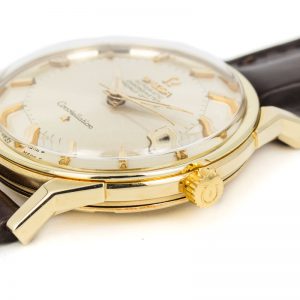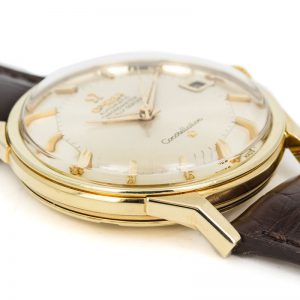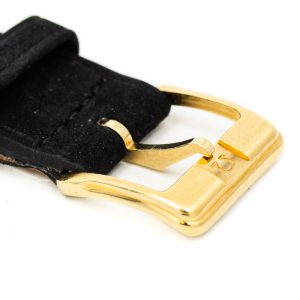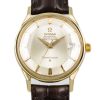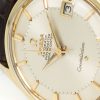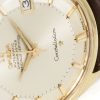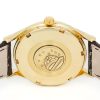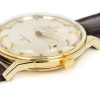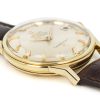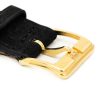Omega Constellation 14k ref. 168.005
When Omega celebrated its centennial in 1948, it launched its first chronometer-rated wrist watch, the Centenary, to commemorate the event. The watch was an instant hit and in 1952, Omega decided it was time to expand its chronometer efforts. The Constellation was born as its top line of officially chronometer-rated watches.
The Constellation would be easily recognizable through a star on the dial and a caseback featuring an image of the Geneva observatory and eight stars. A nod to the accuracy records Omega set at the Kew-Teddington observatory in the 1930’s.
The first models featured bumper-automatics. A variation on the common free-spinning rotor, where the rotation is limited to 120 degrees, before the rotor hits a spring. This can be felt when handling the watch as a little bump. After four years, these calibers were replaced by free-spinning automatics.
The earlier models from the 1950’s and 1960’s, like this one from 1963, featured the iconic pie-pan dial. The dial would slope down at an angle around its outer perimeter, providing a very cool sense of dimensionality. Since the look is reminiscent of the underside of a pie-pan, a nickname was quickly born. Halfway through the sixties, flat-dial versions slowly took over. The pie-pan remains a highly sought-after Constellation variant today.
This example is precisely how you would want to see it. Its champaign pie pan dial forms a lovely ton-sur-ton bond with the 14k yellow gold case, and the Cal 561 is a little more rugged than the previous bumper automatics. This beautiful Omega Constellation is now available at Amsterdam Watch Company.
SOLD
Out of stock
Contact us
Got your attention? We’re here to help.
When Omega celebrated its centennial in 1948, it launched its first chronometer-rated wrist watch, the Centenary, to commemorate the event. The watch was an instant hit and in 1952, Omega decided it was time to expand its chronometer efforts. The Constellation was born as its top line of officially chronometer-rated watches.
The Constellation would be easily recognizable through a star on the dial and a caseback featuring an image of the Geneva observatory and eight stars. A nod to the accuracy records Omega set at the Kew-Teddington observatory in the 1930’s.
The first models featured bumper-automatics. A variation on the common free-spinning rotor, where the rotation is limited to 120 degrees, before the rotor hits a spring. This can be felt when handling the watch as a little bump. After four years, these calibers were replaced by free-spinning automatics.
The earlier models from the 1950’s and 1960’s featured the iconic pie-pan dial. The dial would slope down at an angle around its outer perimeter, providing a very cool sense of dimensionality. Since the look is reminiscent of the underside of a pie-pan, a nickname was quickly born. Halfway through the sixties, flat-dial versions slowly took over. The pie-pan remains a highly sought-after Constellation variant today.
In the 1970’s, all sorts of creative case shapes and integrated bracelets were launched. Different sizes were introduced for men and women. Countless dial variations were sold. Steel, gold and gold-cap versions can be found.
The Constellation is clearly Omega’s high end range. More effort was put into finishing techniques and accuracy. Where the Seamaster and Speedmaster lines were more about utility, the Constellation was (and still is) a tour-de-force in watchmaking precision.
At AWCo we put the safety of our shipments upfront at all times. Therefore, we ship all our packages insured.
We strive to promptly handle packages to minimize delays. Delivery times begin from the day of dispatch. While we make every effort to ensure smooth delivery, we cannot be held responsible for delays caused by destination customs, local duties, taxes, or lost items during transit.
Certainly, we understand that overloaded mail-order companies can also contribute to potential delays in the delivery process. Despite our best efforts, external factors beyond our control may affect shipping times. Rest assured, we remain committed to providing timely service and will work diligently to ensure your order reaches you as promptly as possible. For any inquiries or updates, feel free to reach out to us at info@awco.nl. Your satisfaction is our priority.
| Brand | Omega |
|---|---|
| Model | |
| Reference | 168.005 |
| Year of production (circa) | 1963 |
| Material | 14k Yellow gold |
| Crystal | Acrylic |
| Dial color | Champagne |
| Movement | Automatic |
| Diameter | 34 mm |
| Bracelet/strap: | Leather |
| Buckle/clasp | Original plated buckle |
| Lug Width | 18 mm |

